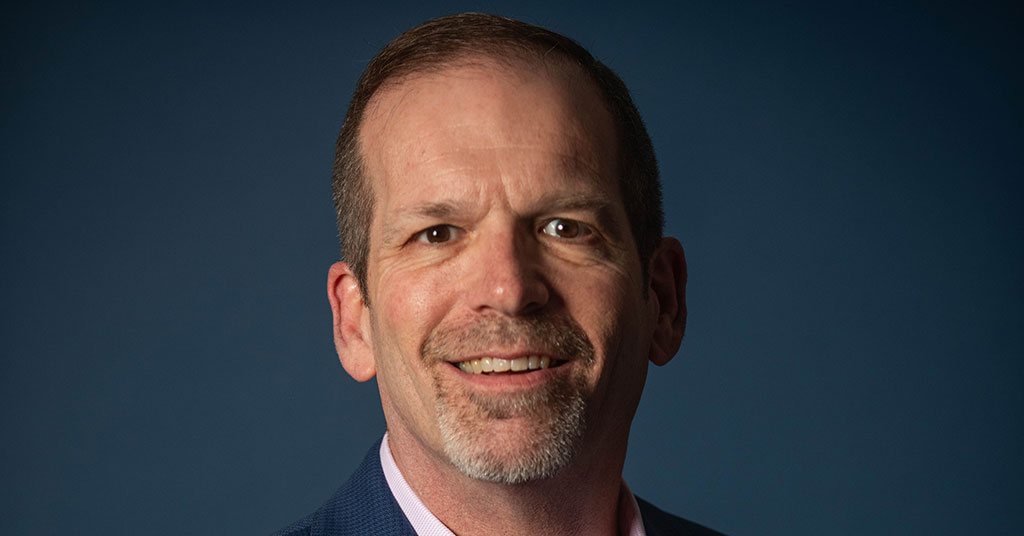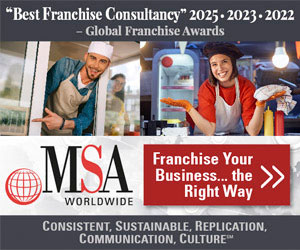Home Matters: Leader Commits to Culture, Relationships, and Market Share

Name: Charles Furlough
Title: President and CEO
Company: Pillar To Post
Units/Brands: 450
Age: 59
Years in franchising: 10 as a franchisee; 17 years as a franchisor
Years in current position: 2
Charles Furlough doesn't give lip service when it comes to supporting franchisees and their success. That's because the president and CEO of home inspection franchise Pillar To Post was a master franchisee for the brand in 1998. Before joining Pillar To Post's executive team, he spent 10 years on the franchisee side, so he knows the challenges franchisees face and the resources they need to thrive.
Furlough was first hired as VP of operations for Pillar To Post in 2008, became senior vice president in 2017, and was named president and CEO in 2023. He and former CEO Dan Steward have been credited with bringing technological advances to the home inspection industry. One example was the recent launch of the Pillar To Post HomePage, a centralized platform that simplifies the home inspection process by providing customers access to all aspects of their inspection.
He's also committed to sharing the brand's culture and cultivating strong relationships with franchisees.
With more than 450 franchises throughout the U.S. and Canada, Furlough sees Pillar To Post as the leading home inspection company in North America. Under his leadership, the brand is focused on providing franchisees with the tools and support they need to succeed so that they can deliver exceptional customer service. "Regardless of market trends, our focus remains on growing market share and supporting our franchise owners," he says.
Leadership
What is your role as CEO? My role is to grow and protect the brand; this should be the role of any CEO. Ensuring the brand's strength and stability while pushing for innovation is at the heart of what I do every day.
How has Covid-19 affected the way you have led your brand? Covid-19 fundamentally changed how we work with a shift to remote operations almost overnight. It forced us to rethink our approach and innovate in ways we hadn't before. Many of the changes we implemented during that time were so effective that they've become a permanent part of how we operate today.
Describe your leadership style. I focus on hiring the best people, setting clear goals, aligning everyone to a shared plan, and maintaining accountability. With great people and a crystal-clear road map, there's no need to micromanage. It's about empowering the team to deliver their best.
What has inspired your leadership style? It's a mix of my personal preferences for how I like to work and what I've learned by observing others throughout my career. Watching different leadership styles at various companies has shaped how I approach my role today.
What is your biggest leadership challenge? People. Finding, hiring, and managing the best talent is always a challenge--not a problem but certainly a significant focus. Ultimately, everything we achieve comes through people, so ensuring we have the right team in place is key.
How do you transmit your culture from your office to frontline employees? By spending time with them whenever possible and communicating consistently and clearly. We emphasize clarity of goals, a shared plan, and our core values. Our people are hired and evaluated based on these values, which naturally fosters the right culture.
How can a CEO help their CMO develop and grow? By providing clear goals and a shared plan and removing any roadblocks in their way. As a CEO, it's essential to support your team and empower them to succeed.
Where is the best place to prepare for leadership: an MBA school or OTJ? Education acts as an accelerator. It's possible to learn everything on the job, but it just takes longer without the school background. That said, there's no substitute for having the right people around you and getting hands-on experience. Both education and on-the-job training play essential roles, but it's the combination of the two that truly prepares you for leadership.
Are tough decisions best taken by one person? How do you make tough decisions? While tough decisions are often made by one person, the best come after gathering input from a strong team. Surround yourself with people who share your core values and have relevant expertise. In the end, though, the responsibility lies with the leader.
Do you want to be liked or respected? Ideally both, but if I had to choose, I'd prioritize being respected.
Advice to CEO wannabes: Leadership is the single most important thing. Be someone your team wants to follow and focus on building a strong leadership team around you. Value your people, and always lead with intention and integrity.
Management
Describe your management style: Today, I see myself more as a leader than a manager. My focus is on hiring great people, setting clear goals, building a shared plan, and fostering a culture of accountability.
What does your management team look like? They are not just managers; they are leaders. They play a critical role in setting direction and ensuring our shared vision is executed effectively.
How does your management team help you lead? They're deeply involved in creating our plans and ensuring alignment. Their contributions and commitment are crucial to our success.
Favorite management gurus: Do you read management books? (please name): I don't follow specific management gurus, but books like Good to Great and The 7 Habits of Highly Effective People have been influential. There is always something to learn from business books if you're open to it.
What makes you say, "Yes, now that's why I do what I do!"? Seeing our people succeed. It's rewarding to witness their journeys, whether they are franchise business owners starting from scratch and growing into thriving businesses or longtime franchise owners transitioning their businesses to the next generation.
Operations
What trends are you seeing with consumer spending habits in your stores? Consumer habits in our space haven't changed significantly. Home inspections are a necessity for buyers, and demand remains steady. While housing supply has normalized compared to 2021, the need for professional inspections hasn't wavered.
How is the economy driving consumer behavior in your system? With rising home prices, inspections are more critical than ever. Consumers recognize the importance of professional insights when making such significant investments.
What are you expecting from your market in the next 12 months? Real estate sales are projected to increase by about 12% this year, which aligns with a gradual recovery.
Are your franchisees bullish or bearish about growth and adding additional units? They're bullish. Even in a challenging market, we're seeing optimism and increased hiring activity across our network.
Are commodity/supply costs any cause for concern in your system? Not significantly. Fuel costs and labor have had an effect, but other costs haven't had a major effect on operations.
In what ways are political/global issues impacting the market and your brand? Mortgage interest rates are the biggest factor. While they feel high compared to the past decade, they're in line with historical averages. Strong home appreciation over the past several years and the rise in interest rates have driven down affordability. However, with four million home sales in the U.S. alone--rising back toward normal--there is still an enormous opportunity in front of us.
Technology
How much influence does your IT department have on your brand? Technology serves our mission; it doesn't drive it. We focus on enhancing the customer experience and ensuring our tools support that goal rather than chasing trends.
How have your company's tech tools changed over the past five years? We've significantly improved our tools. One example is the launch of the Pillar To Post HomePage, a centralized location for clients to access all aspects of their home inspection. It's a simple yet transformative advancement for our customers.
How does technology influence your decisions? Technology plays a role in influencing decisions by aligning with our goals and what we're trying to achieve. It's not about seeking out the latest innovations for the sake of it. Rather, we focus on identifying the challenges we're facing and then exploring what tech is available that can help us solve those problems effectively.
Are you using AI? How? At this point, we're using AI minimally. However, we do see its potential in the home inspection space. We're learning more about it, researching options, and figuring out how AI can help us improve what we do.
How do you measure your ROI on technology investments? ROI depends on the goal. Technology can enhance the customer experience, improve efficiency, and reduce costs. Success is measured by how well it achieves these objectives.
How did/do you create a culture where use of technology advancements is welcome and used? Creating a culture where technology is embraced starts with clearly identifying what each piece of tech is meant to achieve and communicating that purpose effectively. Everyone needs to understand why we adopt specific technology, whether it's to enhance the customer experience or meet specific goals. We ensure that there's clear instruction, so no one has to figure things out on their own.
Personal
What time do you like to be at your desk? By 7 or 7:30 a.m.
Exercise in the morning? Wine with lunch? I don't typically exercise in the morning, and I don't have wine with lunch.
Do you socialize with your team after work/outside the office? Since my team works remotely, we don't have the same opportunities to socialize outside the office regularly. However, whenever we get together in person, we make the most of it. We take advantage of every meal and any extra time we have to connect. It's important to me that we maintain strong relationships and take the time to bond outside of work whenever possible.
Last two books read: Hero of Two Worlds by Mike Duncan is about Lafayette during the Revolutionary War period. Benjamin Hardy and Dan Sullivan's 10x is Easier Than 2x explores how thinking big can be simpler and more effective than incremental growth.
What technology do you take on the road? My cellphone and laptop.
How do you relax/balance life and work? Flying as a private pilot, playing golf, and spending time with my family and grandkids help me unwind.
Favorite vacation destination(s): Anywhere in the western third of the U.S. or Canada.
Favorite occasions to send employees notes: When great things happen in their personal lives.
Favorite company product/service: Our home inspections.
Bottom Line
What are your long-term goals for the company? Our long-term goal is to remain the industry leader in home inspection. We are committed to maintaining our position and continuing to grow by supporting our franchise business owners in building large and profitable businesses. In an industry typically dominated by one or two-person operations, we are evolving into a brand recognized for large-scale inspection companies. We have a higher-than-average number of large franchise business owners, and we expect our growth to continue over the next five to 10 years following an executive business model that drives both expansion and sustainability.
How has the economy changed your goals for your company? Not at all.
How do you measure success? Personal success is tied to the health and happiness of my family and me. When it comes to business, success is all about working with a team I truly enjoy collaborating with. Together, we set aggressive goals and achieve them, and seeing the impact of those achievements on our staff and franchise business owners defines success for me.
What has been your greatest success? Success is working with an incredible team, setting ambitious goals, and achieving them in ways that positively impact everyone involved.
Any regrets? Generally speaking, no. However, if I had to point to something, it would be that I've accomplished so many great things in my life and sometimes wish I could have done them sooner. Time moves fast, and looking back, it would have been nice to have started some of those things when I was younger.
What can we expect from your company in the next 12 to 18 months? Continued growth, innovation, and a focus on supporting our franchise business owners as they build large, profitable businesses.

Share this Feature
Recommended Reading:
| ADVERTISE | SPONSORED CONTENT |
FRANCHISE TOPICS
- Multi-Unit Franchising
- Get Started in Franchising
- Franchise Growth
- Franchise Operations
- Open New Units
- Franchise Leadership
- Franchise Marketing
- Technology
- Franchise Law
- Franchise Awards
- Franchise Rankings
- Franchise Trends
- Franchise Development
- Featured Franchise Stories
FEATURED IN

Franchise Update Magazine: Issue 1, 2025








 The franchise listed above are not related to or endorsed by Franchise Update or Franchise Update Media Group. We are not engaged in, supporting, or endorsing any specific franchise, business opportunity, company or individual. No statement in this site is to be construed as a recommendation. We encourage prospective franchise buyers to perform extensive due diligence when considering a franchise opportunity.
The franchise listed above are not related to or endorsed by Franchise Update or Franchise Update Media Group. We are not engaged in, supporting, or endorsing any specific franchise, business opportunity, company or individual. No statement in this site is to be construed as a recommendation. We encourage prospective franchise buyers to perform extensive due diligence when considering a franchise opportunity.